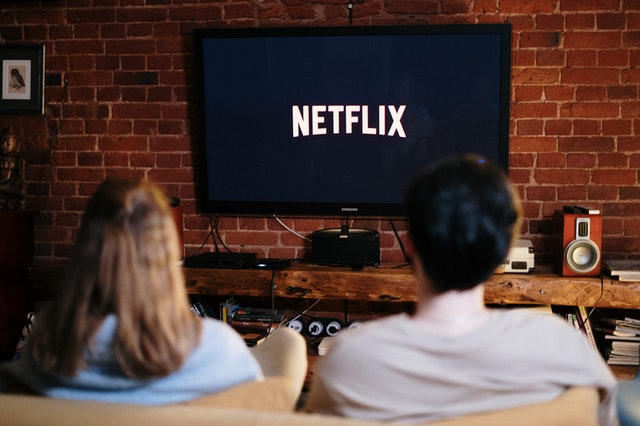
You probably heard this before — sleep is important for your health. It’s more than being rested in the morning to pay attention to classes or be focused at work. Sleep affects us on a cellular level and one of the organs that shows this best is skin.
The experts say we should get 7–9 hours of quality sleep every night. However, a lot of people stay late to work, party with friends, or binge-watch something until sunrise. Sleeping less than five or six hours may not seem like a big deal, but the state of your skin may say otherwise.
When we sleep, our body regenerates itself, gets rid of dead cells, and fights free radicals. If you sleep poorly, you may start showing signs of aging prematurely, like wrinkles and sagginess. This happens because sleep stimulates the production of collagen, a protein responsible for the elasticity of the skin. So, let’s go over the 12 mistakes you may be doing that affect your skin during beauty sleep.
Alcohol before bed
While having a nightcap might help you fall asleep, it doesn’t have any more benefits than that. Alcohol stimulates more active brainwaves making your sleep pattern irregular and restless. For a good night’s sleep, you need to stimulate restorative brainwaves and you can’t do that if you have a glass of wine within 90 minutes before bed.
To avoid this, avoid drinking too much alcohol in the evening and make sure you end your night out with a large glass of water. That will also keep you hydrated and prevent headaches and grogginess in the morning, so it would be easier to start your day.
Opting for cheap sheets
Cheap bedding and pillows can feel uncomfortable to the skin, preventing you to have a peaceful sleep. While you may pay a little extra for high-quality fabric, it will not only improve your sleep but also be good for your skin. Rough fabrics can cause inflammation and contribute to wrinkles, as well as allergies, eczema, and flare-ups, and the same goes for synthetics.
At the mention of quality sheets, the first thing that comes to mind might be silk. However, organic and 100% cotton bedclothes can also be good for your sleep and body, and you won’t have to break a bank to get them.

Electronic devices in the bedroom
Electronic devices that have screens, like TVs, computers, tablets, and smartphones, emit blue light that can keep you awake at night. If you can’t go to bed without any of your favorite devices, then getting a blue light filter can be helpful. However, blue light is not the only issue you might have with electronic devices in your bedroom.
Some devices have displays that emit light, while others make noises — both annoying and irritating enough that can disrupt your sleep or even prevent you to fall asleep. One of the ways to take care of this is by wearing a sleeping mask and earplugs if keeping devices away is not an option.
Social media before sleep
Another downside of having your phone or tablet near your bed is spending time on social media. Watching what other people are up to on their profiles can be emotional enough to postpone your sleepiness. That stress can raise your cortisol levels which in turn can have serious consequences to your sleep, like insomnia.
Receiving notifications, likes, and messages at that time also doesn’t help, since constant dings and other sounds will keep your brain active. One way to avoid spending time on social media is setting Do Not Disturb on your phone to switch on every day at the same time, preferably before bed. Additionally, you can place your phone away from you and stick to the book instead and become a passive audience.
Sleeping on your stomach or sides
We all sleep the way we feel comfortable, but that may not be the best option for our skin. After all, you will spend 7–9 hours in that position so it can have a lasting effect on your face. Wrinkles may show up on the parts of our body we slept on, most commonly the face and chest.
The simplest way to take care of this is by sleeping on your back, but it’s not a cozy option for everyone even though you can get used to it after a while. If this is the case, getting a satin or silk pillow can lessen the pressure on your skin. Moreover, using a copper-oxide Pillow Protector may be beneficial to keep fine lines, like crow’s feet, under control.
Using a thin pillow
Sometimes, sleeping on a thin pillow may do more harm than good, like acid reflux and snoring. That can disturb your sleep, making you wake up at the night. The solution is quite simple: add another pillow or get yourself a thicker one that will elevate your head.
Elevating your head so it’s positioned higher than the rest of your body prevents blood pooling and water retention on your face. If you notice face puffiness and under-eye bags, consider them the first signs you need to get a better and higher pillow for your bed.
Clutter in your bedroom
Adding too many details to your bedroom and not keeping it tidy can make it difficult to have a beauty sleep. Having all that clutter in your bedroom brings stress which in turn can lead to rashes, breakouts, and other issues for your skin.
Reducing clutter will not only give you a clearer space but also eliminate dust and dirt from the environment. They have known causes for respiratory problems, like runny nose, sneezing, coughing, and shortness of breath, that won’t let you sleep peacefully at night. If you are not good at decluttering, decorate your bedroom in the minimalist style so you will have less to worry about.
Lack of blinds
Blinds are not only there to bring shade, but also to give you control over one of the common sleep disruptors — the outside lights. Instead of choosing a simple design, go for the ones that take care of the temperature of the room as well, like honeycomb blinds from Marlow and Finch. That way you can take care of more issues at once and create a comfortable environment to have a night of quality sleep.
Being cold or too warm can make you wake up at night, toss around the bed, and feel discomfort. Not only will take shorten your sleep, but also prevent you from falling asleep in the first place. Furthermore, these uncomfortable room temperatures are not good for your skin as well, since cold can pull moisture from your skin and sweating can lead to inflammation.
Late-night snacks
If you enjoy a snack before sleep or an occasional binge, it may be the reason you are having trouble sleeping. Eating before bed will not only add pounds to your weight but also cause your body to want more food after a while, waking you up at night.
Make sure that you don’t eat anything at least 2–3 hours before sleep to avoid uncomfortable indigestion, like acid reflux. Those who can’t resist a snack should opt for a healthy kind, such are berries and nuts, but no more than 100–150 calories.
Sacrificing sleep
It may believe that going to bed late or sleeping less than recommended occasionally can’t damage your beauty sleep, but it can. Poor sleep can reflect on the quality of the skin, make it age faster, and prevent its proper recovery from environmental stressors.
If you didn’t have a choice but to sacrifice a few hours of sleep, there’s a way to fix it by sleeping in on the weekends. Wearing a fitness tracker or using an app to monitor your sleep can give insight into how many hours you slept and encourage you to do better.
Sleeping with makeup on
Keeping your makeup on while you sleep is the same as not washing your face before bed. This will take you only a couple of minutes, but it can make a lot of difference for the state of your skin. Makeup can clog the pores and lead to acne flare-ups, dry your skin, and cause allergic reactions.
Start with removing your makeup with the appropriate product and then wash your face with a cleanser. Never rely only on makeup remover, since some traces of foundation can stay behind even after you thoroughly cleaned your face. Once you are sure all makeup is off, you can proceed to apply your skincare routine.
Neglecting skincare
Nighttime skincare, like a retinoid product and moisturizer, can help your skin fight signs of aging and dehydration. Consult with your beautician or dermatologist to create the best skincare routine for your skin type.
Using even one product is good for your and can boost your skin’s natural regeneration during beauty sleep. Keep in mind that you don’t have to use expensive products to gain the best results, but only use them properly and on clean skin.
The bottom line
You probably make at least one of these mistakes that can affect your skin during beauty sleep. Having quality sleep doesn’t mean you need to spend a fortune on massages, products, and devices. All you need is some discipline, the right conditions, and a proper skincare routine. Once you get at least 7 hours of sleep every night, your body will do the rest by itself and it will show on your radiant complexion.


